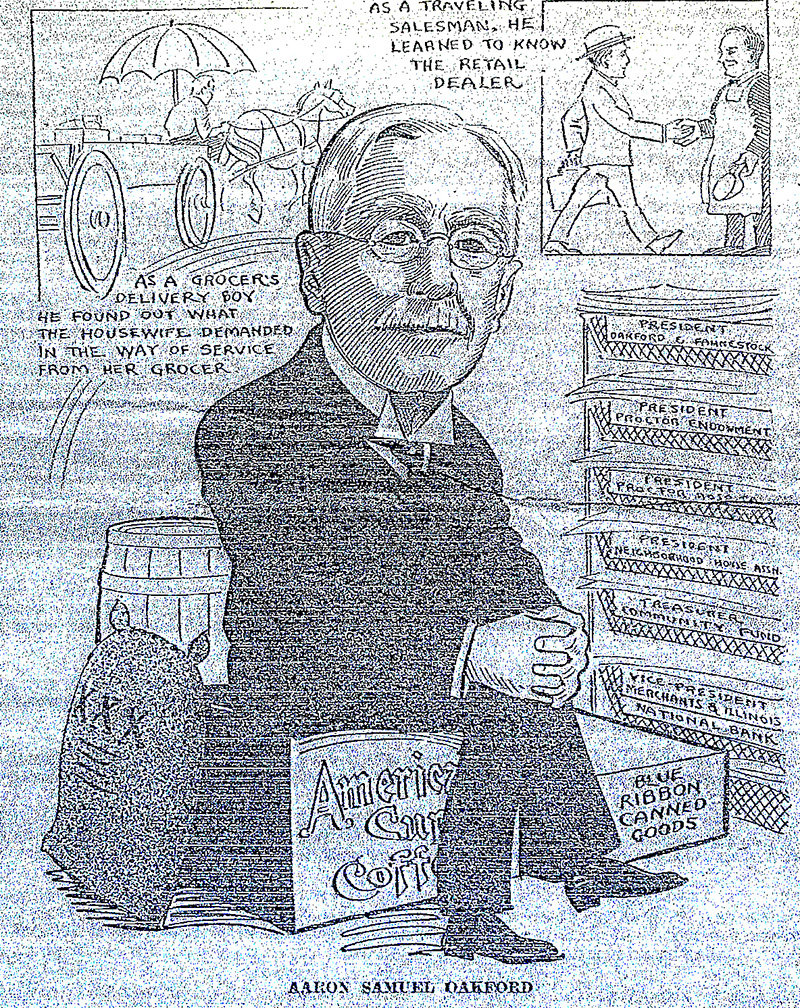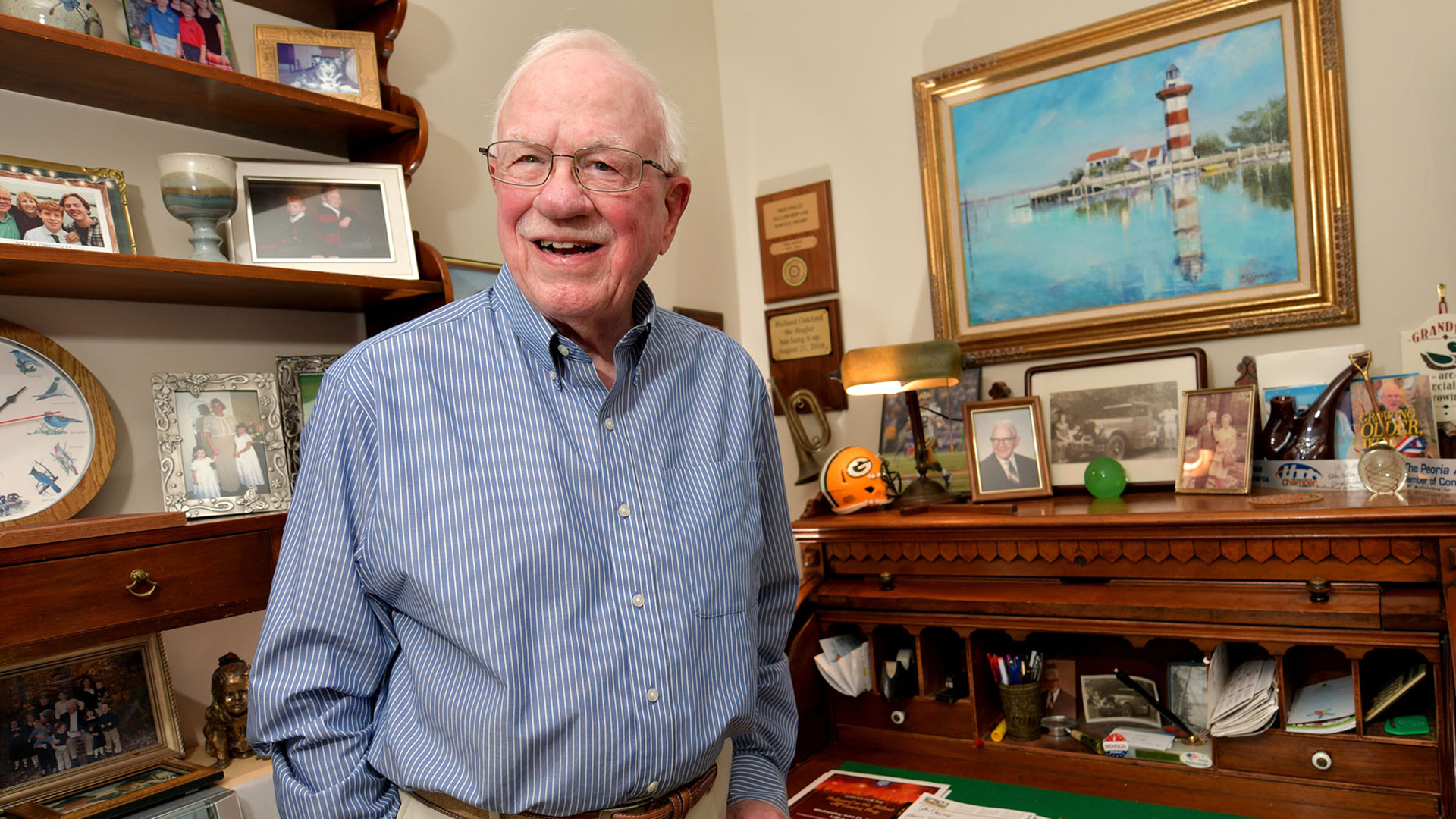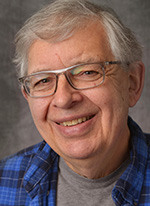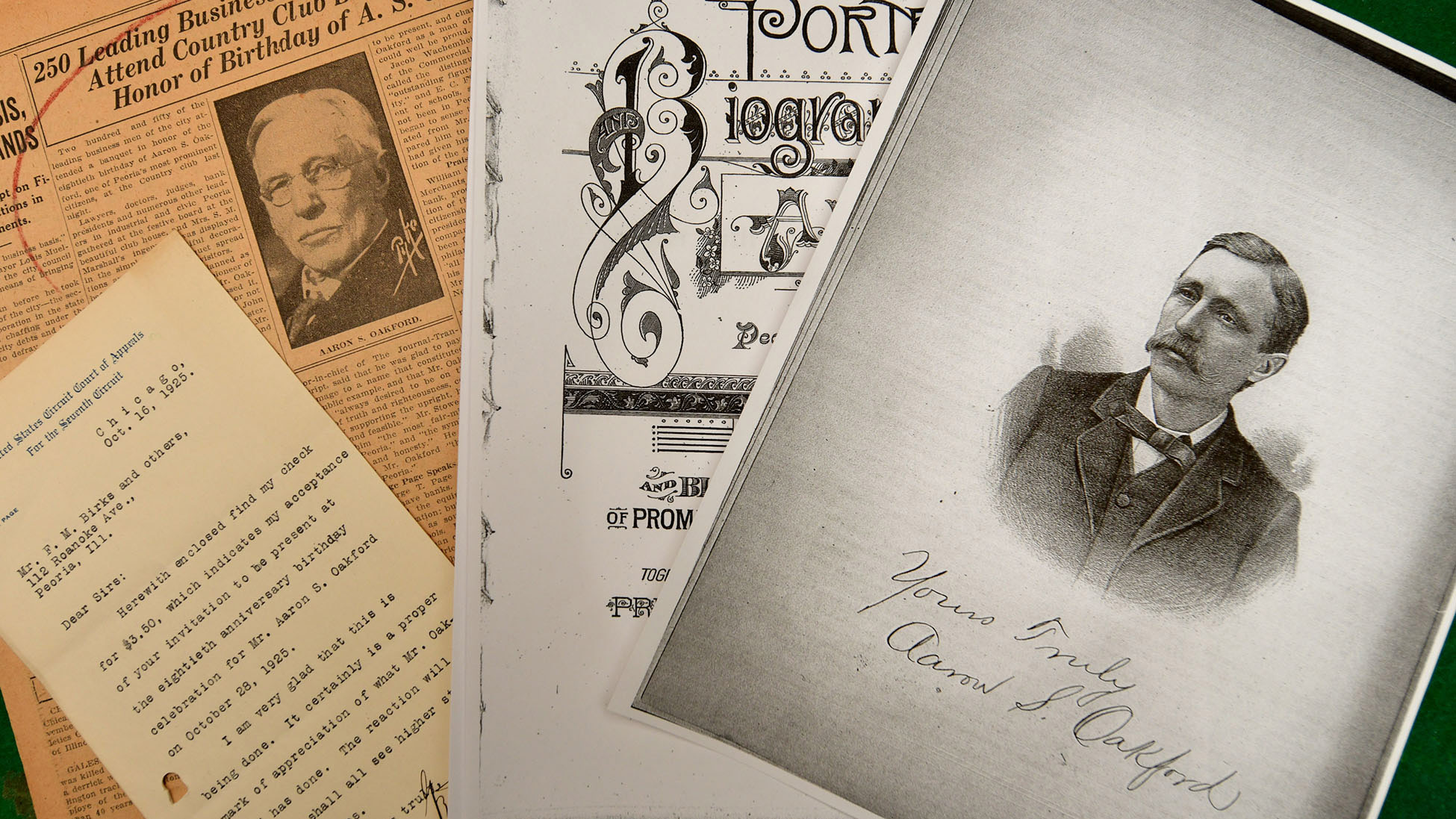Aaron Oakford was a successful 19th century businessman who helped turn Peoria into a real city, and his contributions are still felt today
 We talk about the development and disruption that occurs in our daily lives these days as if other generations never had to cope with change.
We talk about the development and disruption that occurs in our daily lives these days as if other generations never had to cope with change.
While Aaron Samuel Oakford grappled with numerous changes during his lifetime, he also developed institutions that have sustained Peoria now for more than a century.
He was born in Limestone Township in 1845, the same year that Peoria — then with a population around 1,600 — was incorporated as a city. When Oakford died in Peoria in 1933 at age 87 — when the city’s population topped 100,000 — he was proclaimed the River City’s “most useful citizen” by the Peoria Journal, saluted not only as a successful businessman but also as a philanthropist, banker and civic leader.
Oakford’s story started simply. His family left the farm for Peoria when he was just a child. The first of four generations of Oakfords to attend Peoria High School, Oakford spent only a single year there before going to work as a clerk at the grocery of H.H. Potter (later Potter & White), then the largest retail store in the city.
With the high school still under construction at the time, Oakford’s classes were held in the basement of the old Methodist Church at Madison and Fulton streets.
“There was no playground, no gymnasium, no stately auditorium, no library … but there were brainy teachers and, notwithstanding the meager equipment, I count that one year of high school work a very important factor in my life,” Oakford recalled years later.
As a grocery clerk, Oakford worked 12 hours a day, making $15 a month. He delivered groceries by horse and wagon, relating to customers while learning the many operations of the grocery trade.
Oakford noted that the horses he favored for delivery work were those that had been “retired” from the fire department, said Dick Oakford, the 89-year-old grandson who has compiled an extensive record of his grandfather’s many accomplishments.

‘Aaron S. Oakford was an influence in Peoria, not simply a merchant’
— Dick Oakford
In 1868, at the age of 23, Oakford bought the business along with two other clerks. In 1872, H.H. Fahnestock became a partner and the company of Oakford and Fahnestock dropped the retail business to focus entirely on being a food wholesaler.
“The business took on an ever-increasing part in the economic development of central Illinois,” noted Dick Oakford, suggesting that his grandfather showed a “lifelong readiness to readjust business methods to evolving conditions.”
Oakford and Fahnestock became the largest food wholesaler in the Midwest, serving more than 460 stores with revenue of $1.5 million, stated his grandson.
“The company roasted their own coffee under the brand ‘America’s Cup,’ processed their own pickles and milled their own spices under the ‘Blue Ribbon’ label,” he said.
The robust buildings that Oakford and Fahnestock constructed in Downtown Peoria remain in service today. Goods and seasonings were packaged at 311 Water Street, now the home of RC Outfitters, while the nearby Maxam Building, at 316 SW Washington St., housed the company offices as well as storage areas for frozen foods, said Art Oakford, 92, another of Aaron’s grandsons.
But business success was only part of what his grandfather accomplished in Peoria. “Aaron S. Oakford was an influence in Peoria, not simply a merchant,” said Dick.
That influence powered institutions that remain vital in this community to this day. Oakford helped organize and sustain Neighborhood House, the Peoria YWCA, the development of Grandview Drive and the Creve Coeur Club. In addition, he was among the founders of the Illinois National Bank (now PNC Bank) and served as president of both the Proctor Endowment Home and Proctor Hospital.
Oakford served as president of the Peoria County Board as well as a director on the Peoria Association of Commerce. He played a role in the formation of the United Way campaign in town as well as the building of the Cedar Street Bridge. Oakford was also part of a group that built a sugar factory in Pekin in 1898, its product derived from sugar beets. When that proved unprofitable, the plant was sold to Corn Products Refining Co. (now Alto Ingredients).
Oakford and wife Elizabeth raised five children, four sons and a daughter, and their actions and offspring would go on to benefit the Peoria community in myriad ways. Elizabeth died in 1890. Ten years later, Oakford married Mary Lines, the flower girl from that first marriage. Aaron and Mary became known as the patron saints of Neighborhood House, Dick Oakford stated.
In 1927, the president of Boston University sought Oakford’s opinion on the qualities a college student should possess. Oakford’s response cited the need for “open-mindedness — not only a willingness but a desire and a purpose to weigh carefully both sides of every controversy and to recognize the fact that we are living in a constantly changing world.”
Good advice from a man whose 70-year business career in Peoria saw the transition from covered wagons to airplane travel.





